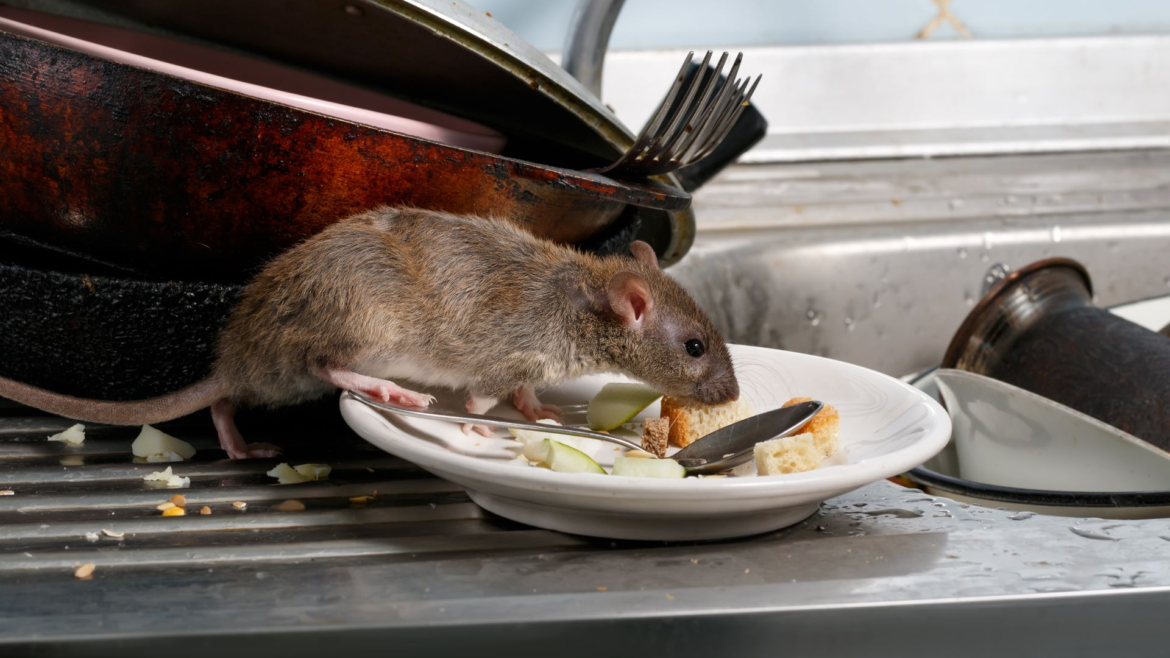
The British capital is known for its liveliness, well-embodied history, appealing artistic heritage, and mixed citizenship. Nonetheless, it is also one of the world’s major metropolitan areas, and with that comes a set of difficulties, such as pest management services. One of the critical problems in the lives of the present generation of people who are the owners and occupants of homes is that of rodents. Appealing to and ensuring proper pest management control is necessary not only for peace but also for health and safety. In this sense, this paper delves into rodent control London as a housekeeping issue, focusing on some warning signs and other methods of handling pests.
Understanding the Rodent Problem in London
Urban areas like London are inhabited by many different types of animals, among them rats and mice. They are unavoidably present because of the huge train network and the many people who serve as food. Rats and mice are the most popular animals in London. They breed so fast, and these two are the reasons why, if not well taken care of, they might cause more harm.
Rodents pose various risks, including:
- Health Hazards: Rodents can be carriers of diseases such as leptospirosis, hantavirus, salmonella and others which can be passed to humans through handling of their feces, by urine droplets, or even biting.
- Property Damage: Rodents can destroy electrical wires made of wood and insulation, requiring fresh and often expensive modifications. In addition, they are equally huge fire hazards.
- Food Contamination: It is well recognised that hoarding food items in mice areas is very unfortunate due to the sneaky nature of rodents, which may get paths that are not under one’s control and adverts all efforts of food control to maintain such good records. However, their procedures fail due to contamination by rodents.
Recognising the Signs of Rodent Infestations
Early detection is critical for the control of rodents. Here are some unmistakable clues that tell you that a place may be infested:
- Droppings: Discovering tiny, black excreting pellets would be the most apparent indicator that rodents have been around. The feces of rats are definitely more conspicuous than those of mice. Still, both can be located close to areas where the rodents seek shelter—around food or nesting spots.
- Gnaw Marks: Inspect the furniture, walls, and any packaging for bite marks. Rodents are known to have strong teeth, so they chew on different materials to prevent their teeth from overgrowing.
- Nesting Materials: Rodents make their shelters from torn paper, fabric, and possibly even insulation. If these materials are located in concealed locations, they might be obvious signs of a shelter.
- Footprints: As evidence, on some dusty surfaces, you can encounter tiny footprints or tail marks that may have been left recently by the invading rodents.
Effective Rodent Control Strategies
There are several ways to tackle rodent infestations. Living in big cities, we are all likely to have mice infestations; London is no different.
- Prevention
The number one effective strategy to keep everyone safe, healthy and happy is to prevent any rodent infestations from occurring in the first place. Here are helpful preventive care measures:
- Seal Entry Points: Inspect your premises for rodent entrances. If found, block any openings with sealers, wires, or any other sewage-proof material.
- Maintain Cleanliness: Adhering to cleanliness and order at home or in the establishment is a number one measure of prevention. Keep food in sealed containers, mop up and dispose of spills promptly, fill in the required container and cover it to ensure cleanliness.
- Manage Outdoor Spaces: If wild plants are planted around the compound or a few unnecessary things are left in the garden, it is advisable to get rid of them. Rodents usually find hiding places in such areas.
- Traps and Baits
If you have a problem with infestations, reliance on traps and baits can be beneficial:
- Snap Traps: Classic snap traps make it possible to eliminate rodents in a quick and balanced manner. These trucks are intended for placement in the places of the highest rodent activity, for example, where droppings or nests are left.
- Humane Traps: For people who like to take measures to prevent animal suffering, illustrated traps that catch the animals without hurting them can be utilised. However, it would be better if the animals were released in rural as opposed to urban areas to ensure they do not come back.
- Professional Pest Control Services
For severe types of infestations and at points when at-home remedies fail, one is advised to engage the services of pest controllers. Following the hiring of the professional help and advisory expert;
- Implement Targeted Treatments: Pest exterminators would be able to use specific treatments that have been known to be successful and directed towards the exact issue in their findings.
- Provide Ongoing Support: Most pest control London entities have a follow-up support service to ensure that re-infestation is kept at a minimum, which ultimately guarantees lifetime peace for those affected.
Conclusion
Rodent control is an essential component of pest control in London. Knowing how to recognise and control these pests, the causes of infestations, and when to call for professionals make it possible to maintain a safe and healthy environment at home and at work.
It is well known that early prevention is critical to managing pest problems in the metropolitan area. To ensure that this necessary service is not disturbed by pest infestations, one has to embrace existing but sadly slowly dying common behaviours within urban areas.


